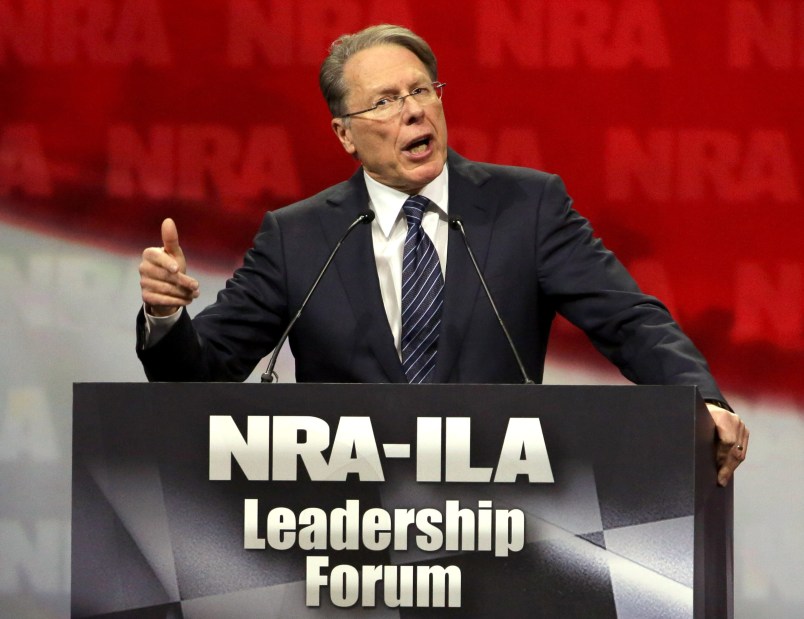A Texas federal judge rejected the National Rifle Association’s bankruptcy application on Tuesday, saying that the gun group was using the process “to address a regulatory enforcement problem, not a financial one.”
U.S. Bankruptcy Judge Harlin Hale for the Northern District of Texas wrote in the ruling that the NRA had not filed for bankruptcy “in good faith both because it was filed to gain an unfair litigation advantage and because it was filed to avoid a state regulatory scheme.”
The ruling marks a big win for New York State Attorney General Letitia James. Had the bankruptcy filing gone through, it could have allowed the NRA to move its assets out of New York state and to Texas.
But now, the NRA will continue to face off against James, who is seeking dissolution of the group after finding evidence of rampant self-dealing in a multi-year investigation of the non-profit.
“Weeks of testimony have demonstrated that the NRA and Wayne LaPierre simply filed chapter 11 bankruptcy to avoid accountability,” Attorney General James said in a statement after the ruling. “The rot runs deep, which is why we will now refocus on and continue our case in New York court.”
An employee of the U.S. Trustee, a DOJ office that enforces bankruptcy laws, gave the group a rare rebuke last week in the case, telling Judge Hale that the record showed that NRA leader Wayne LaPierre’s “personal expenses were made to look like business expenses.”
Judge Hale gave a scathing overview of the NRA’s position in the case, saying that he was troubled by the group’s “secrecy” and the fact that it did not disclose the bankruptcy filing to its own board of directors.
Hale added that the NRA had provided differing reasons for why it filed for bankruptcy. Those, Hale wrote, included both moving to Texas to reduce operating costs and to cope with the cost of ongoing litigation.
Hale did not buy either of those reasons as animating the decision to file for bankruptcy and relocate to Texas. Rather, he wrote, filing for bankruptcy “appears to have been a means of achieving the more specific purpose of avoiding dissolution in the NYAG Enforcement Action.”
He added that James’ lawsuit poses an “existential threat” to the NRA, and asked whether that is “the type of threat that the Bankruptcy Code is meant to protect against.”
“The Court believes it is not,” Hale wrote.
Hale added that he had “great concern” about the case because the gun group was trying to use bankruptcy “as a tool to win its dissolution lawsuit, and that is not an appropriate use of bankruptcy.”
The judge concluded that while he was dismissing the case without prejudice — potentially letting the NRA file again — he would use any new bankruptcy case to examine questions about the gun group’s “conflicts of interest of officers and litigation counsel,” as well as other issues including “disclosure, transparency, secrecy” and others.
That, Hale added, could cause the appointment of a trustee to oversee the group’s affairs out of a worry that it was incapable of fulfilling its fiduciary duties.
Read the decision here:






